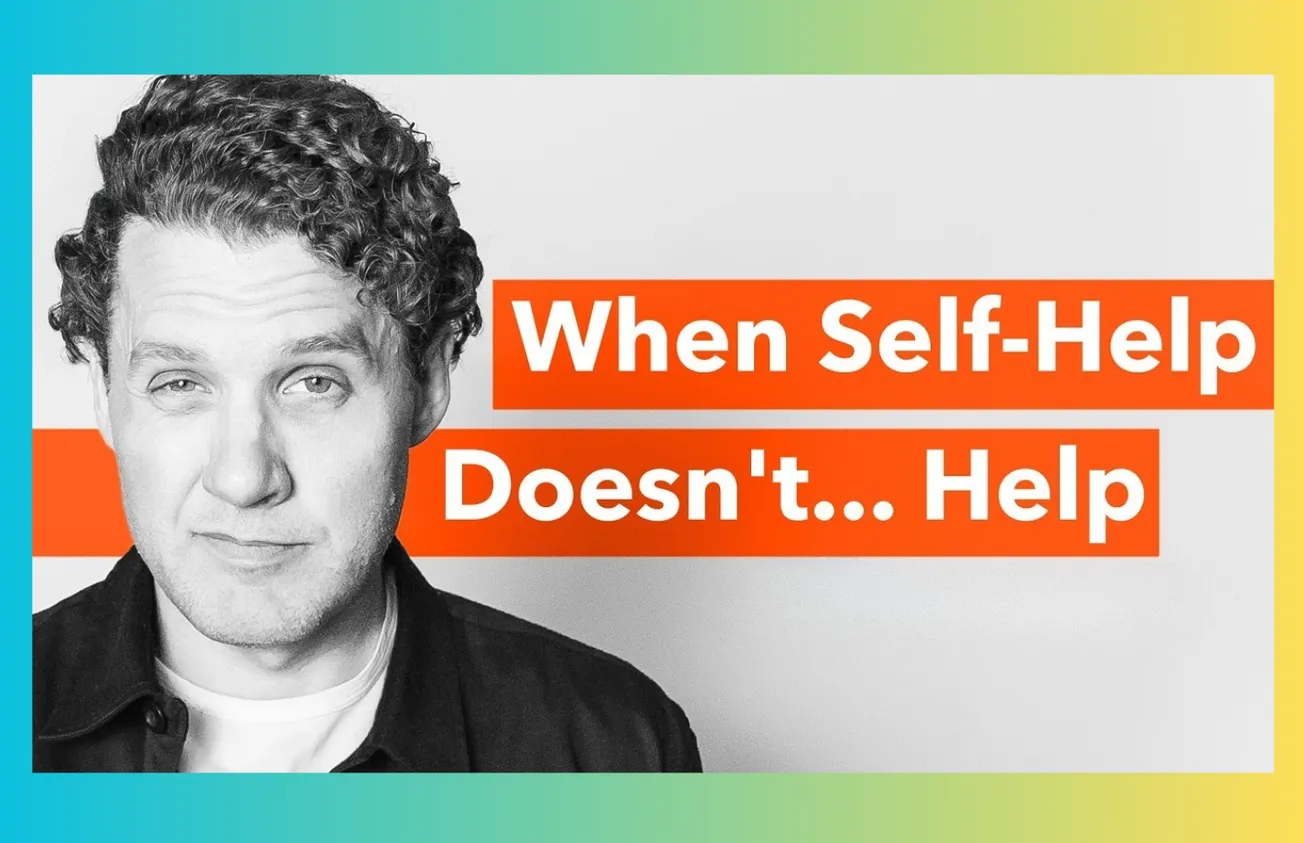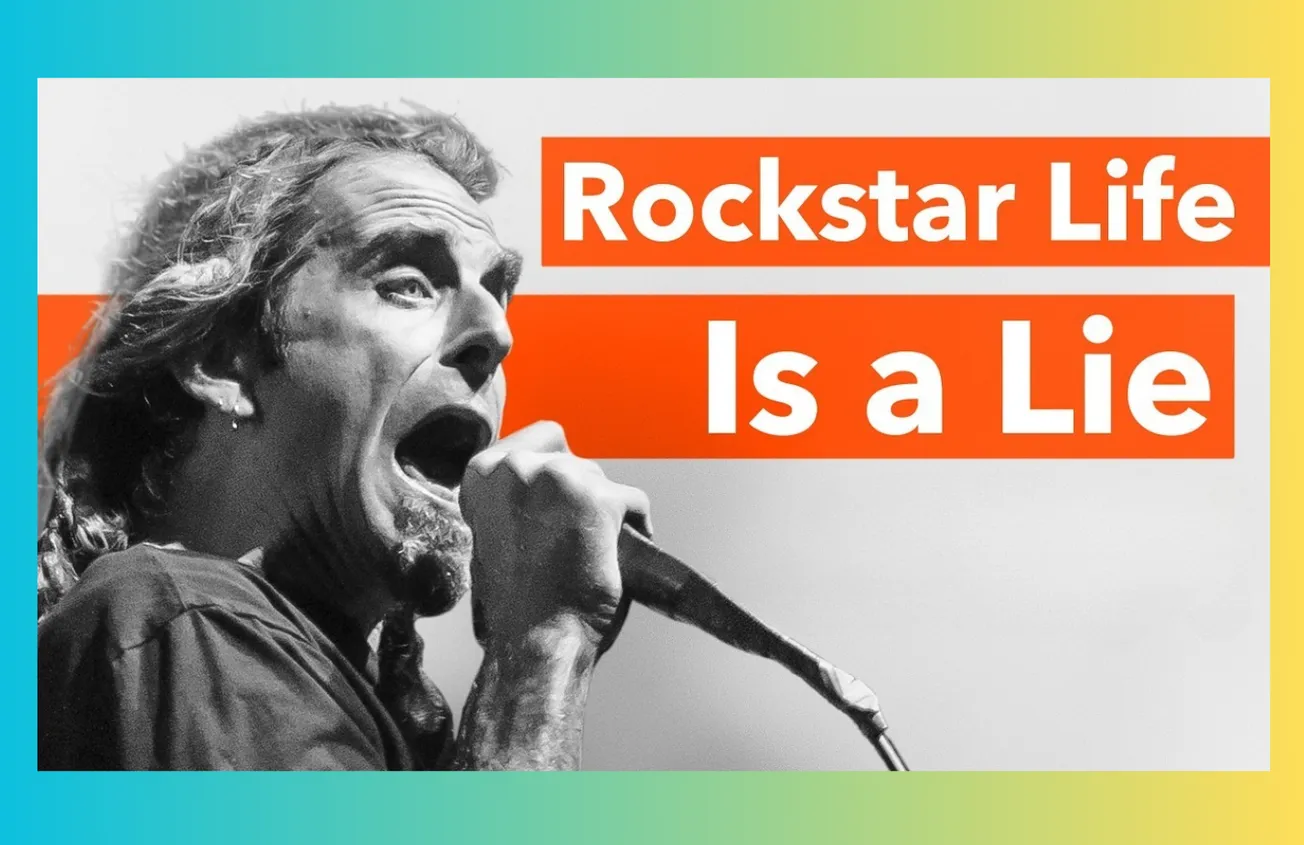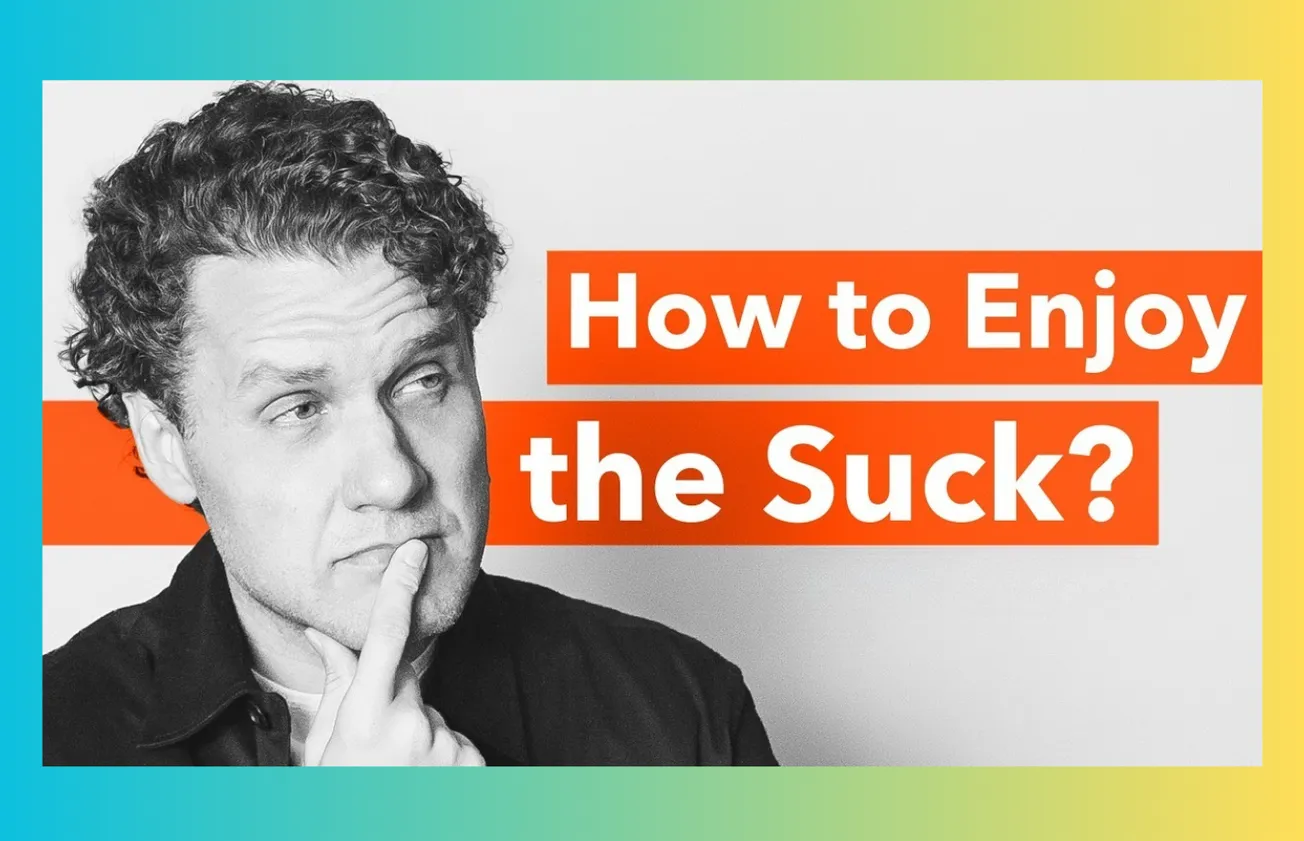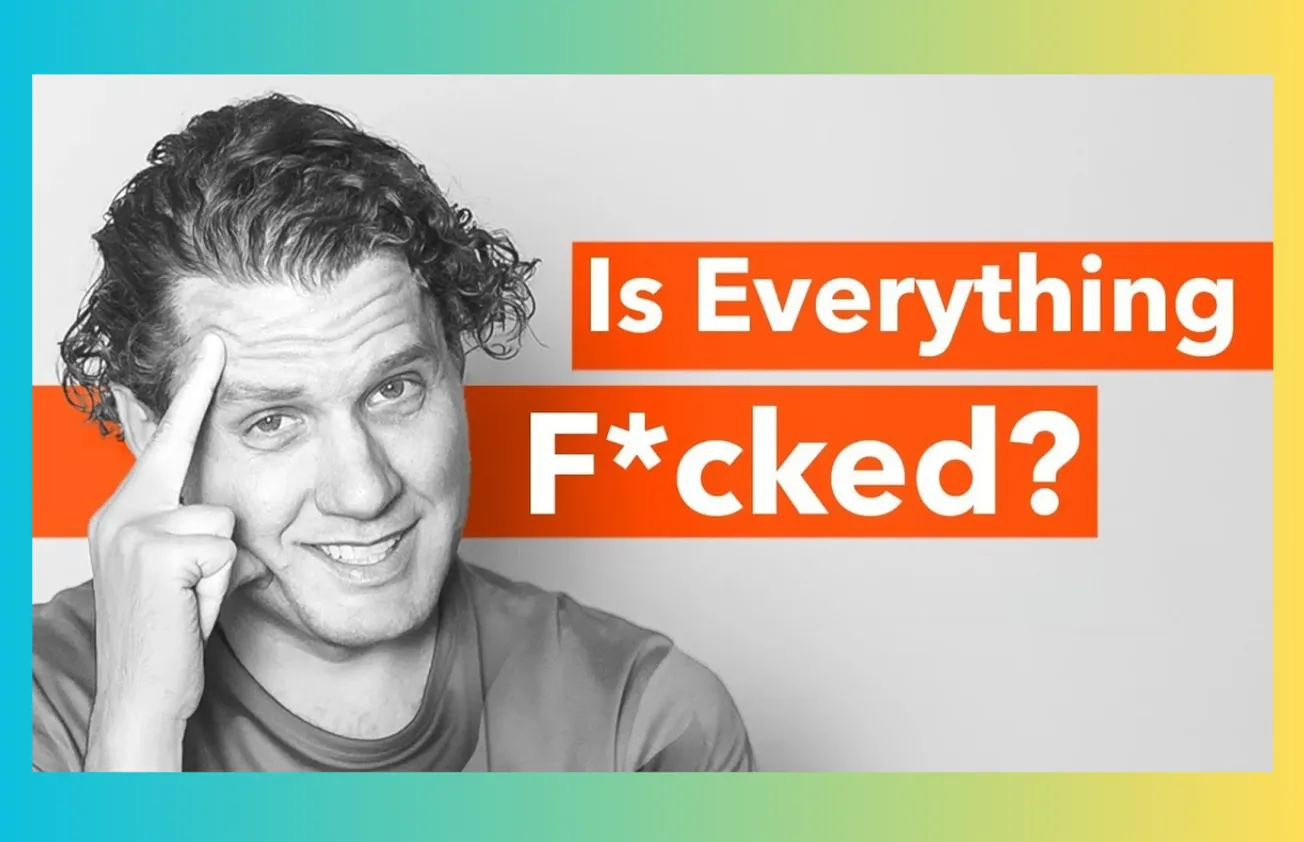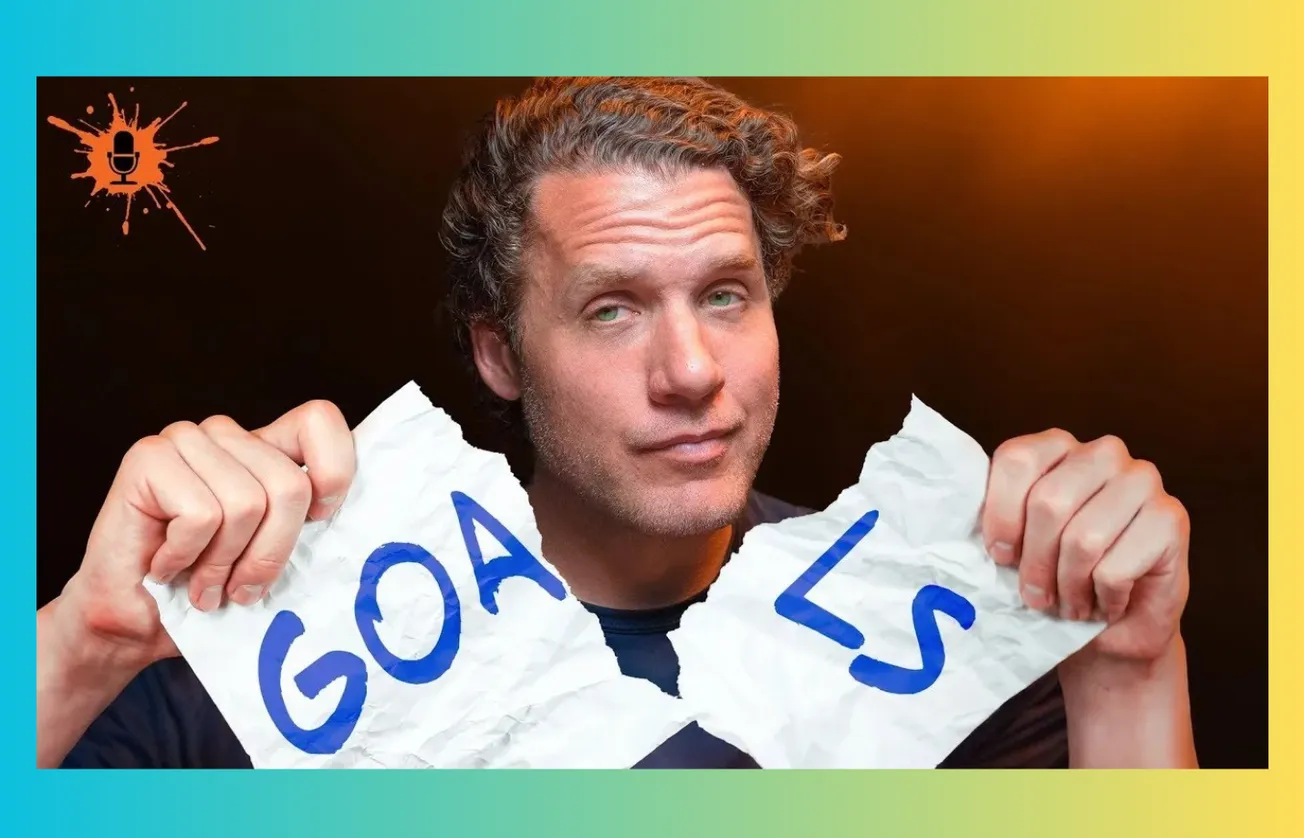Table of Contents
More than a decade after dismantling the self-help industry in a viral post, Mark Manson returns with added maturity, skepticism, and a curious openness to reevaluate growth, healing, minimalism, and secular longing. This is about more than hacks—it’s about what sticks when the buzzwords fade.
Key Takeaways
- Self-help fails when it pretends everyone’s on the same path. Nuance is not optional.
- The industry often profits most from the people it’s least able to help.
- Intellectual self-improvement can become emotional avoidance in disguise.
- Transformation rarely looks like epiphany. It’s usually repetition, boredom, and discomfort.
- Minimalism can be freeing or performative—depending on what it’s covering up.
- Scientific grounding in self-help has improved, but personal fit remains more important than any meta-analysis.
- Sentimental attachment to physical objects is a form of psychological anchoring, not materialism.
- Organized religion offered containers for meaning we’re still struggling to rebuild.
- Attention is the modern soul. Where it flows, so goes your identity.
- True growth builds independence—not dependence on another course, teacher, or trend.
Two Audiences, One Dysfunctional Model
- Manson revisits his famous essay, now with a distinction that changes everything: the “bad-to-okay” crowd (dealing with trauma, addiction, grief) and the “okay-to-great” crowd (functional, goal-driven).
- Most self-help content assumes both groups want and need the same thing. They don’t.
- What inspires the latter may devastate the former. What comforts the former may bore the latter.
- “Motivating someone who’s drowning can feel like yelling ‘swim harder!’”
- The real issue isn’t the advice—it’s the absence of context. And context is what determines whether self-help heals or harms.
- People in crisis need reassurance, not responsibility; grounding, not grit.
- People in stability need challenge, not coddling; discomfort, not certainty.
- One-size-fits-all becomes zero-size-fits-any.
The Codependence Economy: Selling Hope by Selling Helplessness
- Some gurus create revolving-door customers by promising fast results, then shifting blame when those results don’t appear.
- The implication: if you’re still struggling, it’s because you didn’t try hard enough.
- This creates shame loops and keeps people hooked—not on tools, but on the fantasy of arrival.
- Manson candidly shares where he’s felt the pull: moments when audience praise tempted him to promise more than he should.
- “Clarity isn’t addictive. Hope is. That’s the ethical fault line.”
- Real growth leaves people less reliant on the teacher—not more.
- The moment self-help becomes something you need forever—it’s no longer help. It’s maintenance.
- The industry wins when you stay uncertain. The goal is to outgrow it.
The Self-Help Buffet: When Learning Becomes Emotional Avoidance
- Drew describes his spiral into endless courses, books, and frameworks—all while avoiding an overdue breakup.
- “I wasn’t getting better. I was just getting fluent at talking about getting better.”
- Mark draws a hard line: consumption without embodiment is just anxiety in disguise.
- Many use intellectual progress to avoid emotional confrontation.
- Pain doesn’t require explanation. It requires integration.
- “We don’t need another framework. We need a moment of courage.”
- Self-improvement is only valid when it results in real-world behavior change.
- You don’t need more insight. You need follow-through.
Minimalism’s Illusion of Control
- In their twenties, discarding everything felt spiritual. Luggage over furniture. Bare walls. Zero sentiment.
- But minimalism became aestheticized—another identity to curate and perform.
- “Owning fewer things doesn’t mean you carry less baggage. Sometimes, it just hides it better.”
- Now older, they embrace comfort and beauty: a couch that matters. Photos that anchor memory.
- They’ve kept the core question: “Is this worth the space it takes in my life?” But dropped the judgment.
- Minimalism isn’t a virtue. It’s a tool. And tools only matter if they help build the life you actually want.
- If you’re anxious about what you own, you’re still owned—just by a different fear.
Science and Self-Help: An Uneasy Marriage
- The gap between evidence and enthusiasm remains wide. But not hopeless.
- Tools like mindfulness, journaling, and social accountability now show modest but consistent benefits.
- The problem? The application still depends on individual commitment, life stage, trauma history, and timing.
- Manson urges skepticism, not cynicism. “Use self-help like gym equipment. It works—if you know your limits.”
- Drew adds: even placebo isn’t useless. If it builds momentum, it still has value.
- Trust the tool, but more importantly—trust your own feedback loop.
- And remember: even science is statistical. Your outlier experience still counts.
The Emotional Geometry of Objects
- Possessions don’t just occupy space. They hold memories, identity, and grief.
- Drew’s story of his grandfather’s clamps—technically useless, emotionally profound—illustrates how objects can be vessels of continuity.
- Minimalism ignores the emotional physics of place and memory.
- Manson reflects on his father’s handwriting on a yellowed note: “It’s not paper. It’s presence.”
- They conclude: ownership becomes toxic only when used to outsource self-worth. Not when it’s used to carry memory.
- Emotion lives in the ordinary. Don’t declutter it out of your life.
Church Without Faith? The Case for Secular Belonging
- A question from a listener: Can an atheist go to church just for the ritual and community?
- The hosts consider what churches offer that’s missing in secular life: multi-generational community, consistent space for reflection, moral language, and music.
- Manson notes: secular society excels at stimulation—but struggles with stillness.
- Churches once held the calendar of life: birth, marriage, grief, service. Without them, many drift into existential freelancing.
- “You don’t have to believe everything. But you have to believe something. Or you float.”
- Religion offered a rhythm. Now we’re left tapping out our own beat—with no choir to join in.
Final Reflection: Don’t Chase the Glow. Plant the Roots.
If the self-help world still sells dreams, it’s our job to buy wisely. The best advice won’t thrill—it’ll ground. Growth happens quietly. Dignity comes from restraint. Meaning lives in the long game. Show up. Stick with what feels real. And trust the slow unfolding of becoming. You don’t need to be inspired—you need to be consistent. You don’t need a map—you need to keep walking.

